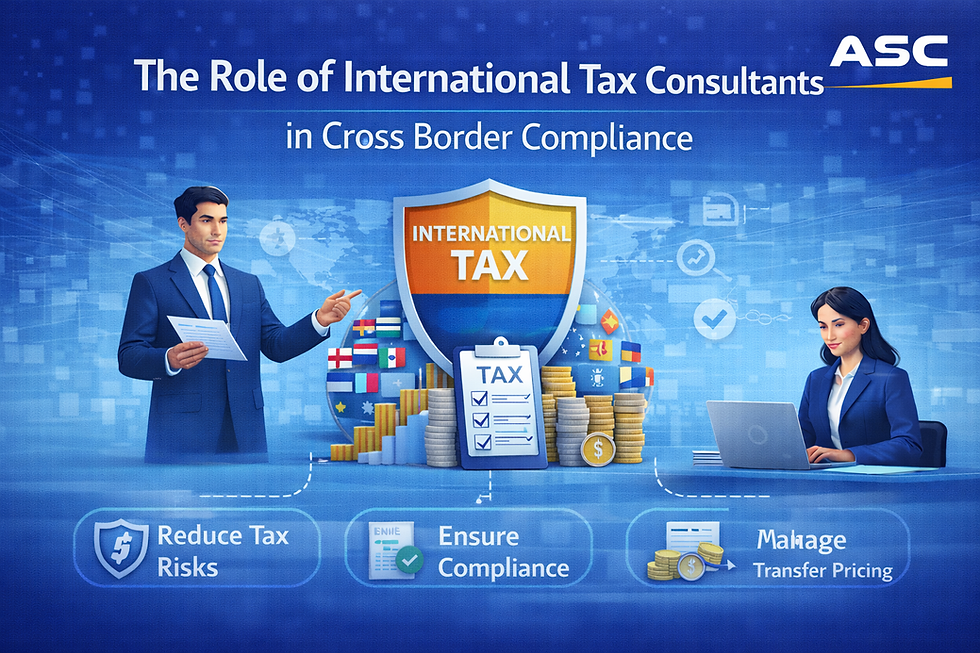Support of Micro, Small, And Medium Enterprises with EPR Registration Business.
- ASC Group
- Mar 20, 2024
- 4 min read
In the modern business environment where small and medium-sized enterprises (Abbreviated as SMEs) work in harmony, they become the growth drivers, the springboard to innovation, and the source of new job creation. On the one hand, SME conduct their business while confronting a multitude of issues, diverse as from limited resources to market entry challenges, finally to battling with government regulations. governments all over the world are increasingly presenting this issue and innovative approaches in the form of Extended Producer Responsibility (EPR) tailored for SMEs are playing a key role in the sustainable development of business. EPR is a strategy concerning 100% lifetime of a product, from producers liability in the process to post-consumer waste disposal. In the EPR registration, big corporations had been more actively viewed of their critical part in the environment sanitation and the eco-system due to their high environmental impact. Cognizant of the fact that small and medium sized enterprises are frequently primary economic actors, governments have designed EPR regulations that are exclusively aimed at such actors. An aim of the EPR registration for SMEs is to promote the concept of the environmentally friendly behavior in operations and to decrease overheads of small owner-operators. Governments enact EPR programmed mandatory for SMEs in order to especially ensure that these companies internalize how the environmental impact of the products is handled during the extended lifecycle.
EPR registration for SMEs typically involves several key components: 1. Education and Awareness: Governments with the respective agencies will conduct outreach programs that will encourage the SMEs to learn the reasons behind the EPR certificate and the costs and benefits of participation. This will be adjusted through publicity campaigns that will talk about the way of waste management, recycling and the damage environment related to their products. 2. Simplified Compliance Procedures: Aiming at alleviating the constraints faced by the SMEs, small businesses’ registration procedures under EPR regulations, frequently include simplified compliance processes. The reduction of the burdens could be done via the establishment of simplified requirements for reporting, lowering the fees to be paid, and provision of advisory services and guidance to ease SMEs into the process of registration. 3. Financial Incentives: Some SMEs are persuaded by financial benefits offered either by the EPR programs or the utilization of sustainable practices. Amongst various incentives, one is friendly technologies providing subsidies, grants for waste management, and tax breaks for involvement in recycling-related things. 4. Collaborative Partnerships: Government authorities, industry alliances, and ecosystem protection organizations cooperate to help SMEs comply with their EPR requirements. Through organization, the assistance may entail providing technical assistance, creating opportunities for recycling facilities, or developing connections between SMEs and waste management companies. 5. Capacity Building: SMEs’ EPR registration policies mostly comprise of capacity building initiatives made to empower such entities to be equipped with the adequate skills and capability to handle waste management. This may involve creation of the training programs, workshops and knowledge-sharing platforms that will enable the business to have sustainable business practices and environmental stewardship. By empowering SMEs with EPR registration, governments aim to achieve several overarching goals:
• Environmental Protection: Through EPR registration, we establish a system of accountability for SMEs so that they can produce less toxic waste and take part in reuse and recycling. This way, we will bring down emissions, cut resource overuse and promote the circular economy. Such enterprises can make tremendous impact on the environment if they emphasize reducing scraps, refurbishments and recycle the wastes. • Compliance and Enforcement: EPR registration helps small and medium business (SME) doing the regulatory requirements that waste management and environmental protection are included. In this way, the governments come up with transparent rules and check mechanisms to track as well as to force the non-compliant businesses to be in recognized needs.
• Market Competitiveness: SMEs can be able to lift the market competitiveness of their businesses when they are members of the EPR program by showing their dedication to adherence to the environmental rules and a responsible business style. EPR might spur new delivery channels, the one that profits from this notion of environmental friendliness. • Social Responsibility: SMEs can achieve their role as social stewards by acknowledging that their products may have negative environmental implications as well as the access to better communities and provision for future people. The EPR registration transforms previously seen as in a material way to something more than just a business and help SMEs to combine environmental stewardship with their strategic objectives.
However, you should know that despite the various advantages of digital platform adoption for SMEs, the challenges persist. There could also include inadequate knowledge and experience of SME owners on the subject of eco-products principles because of the problems with resources and the necessity of ongoing support and capacity building. Thus, to code such problems satisfactorily governments, private industry, and corporate bodies, together with support institutions, should coordinate in offering specialized services, as well as creating the climate allowing SMEs to develop their businesses in the long run.
In sum, the EPR certificate customized for SMEs seems to be a prospective way of strengthening the economic picture of small companies, of stimulating greener activities and to facilitate environmental objectives in the long-term. Governments can boost the contribution of SMEs in that they will allow these enterprises to trigger off a positive change, foster innovation and build a future sustainable economy through the involvement of SMEs into the extended producer responsibility framework.



Comments